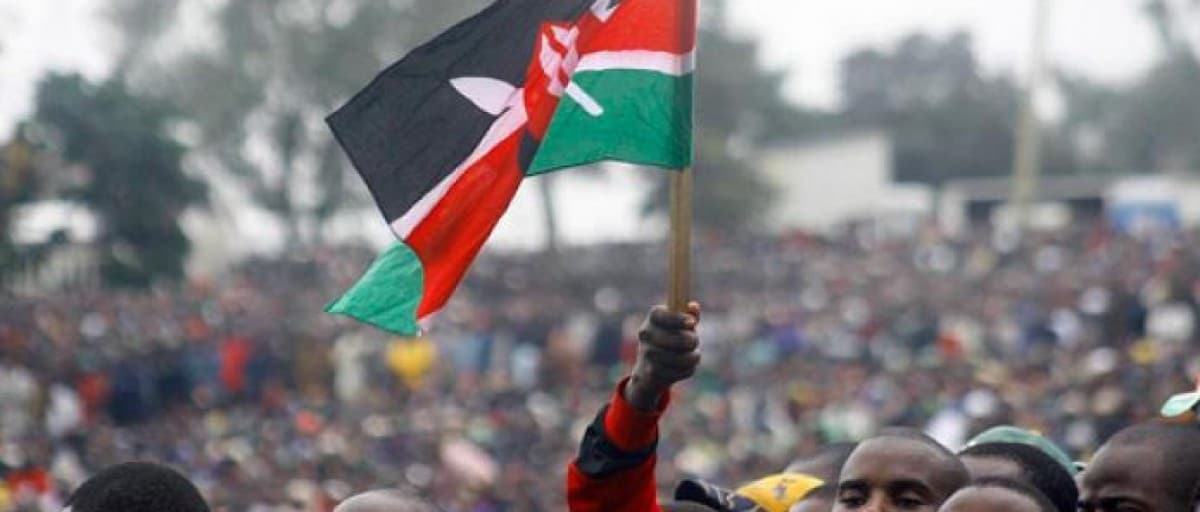We're loading the full news article for you. This includes the article content, images, author information, and related articles.
Following a wave of youth-led protests, a new survey indicates seven in ten young Kenyans plan to vote in 2027, signaling a potential shift from street activism to ballot-box influence. But deep-seated distrust in the electoral process

NAIROBI, KENYA – A significant surge in political consciousness among Kenya's Generation Z could reshape the country's electoral landscape ahead of the 2027 General Election. A recent study reveals that approximately seven in ten young Kenyans intend to cast their vote, a figure that suggests a pivotal shift from protest to political participation. This development follows a period of intense youth-led demonstrations against government policies, most notably the 2024 Finance Bill.
The study, conducted by data research firms OdipoDev and Tribeless Youth, highlights a generation awakened to its civic power but simultaneously hampered by systemic barriers. While the energy from the streets signals a departure from previous youth apathy, significant obstacles remain. Chief among them are a profound lack of trust in the Independent Electoral and Boundaries Commission (IEBC) and practical difficulties in voter registration. According to Winny Jerotich, a researcher at OdipoDev, many youths feel their votes will not count due to perceived political interference in the electoral body.
Historically, youth participation in Kenyan elections has been underwhelming. In the 2022 General Election, youth (aged 18-34) accounted for only 39.84% of registered voters, a 5.27 percentage point decline from 2017, according to the IEBC. This apathy was attributed to a lack of faith in the political system, disillusionment with unfulfilled campaign promises, and pressing economic challenges like high unemployment. The 2022 election recorded the lowest voter turnout in 15 years, largely due to the disengagement of the youth demographic.
However, the widespread, digitally-mobilized protests of 2024 marked a turning point. Driven by economic grievances and a demand for greater government accountability, Gen Z demonstrated a formidable ability to organize and voice their concerns, largely independent of traditional political structures. This activism has translated into a desire for more formal political influence, with analysts suggesting this generation could disrupt long-standing ethnic voting blocs that have historically defined Kenyan politics.
Kenya is a youthful nation, with about 75% of its population under the age of 35. By 2027, an estimated 14 to 17.8 million Kenyans aged 18-34 will be eligible to vote. The IEBC has plans to register approximately 5.6 million new voters before the next election, a figure that could significantly increase the youth's voting power. Given that the 2022 presidential election was decided by a margin of just over 200,000 votes, a mobilized youth electorate could be the single most decisive factor in 2027.
This potential has not gone unnoticed by the political class. Key political figures have already begun efforts to court the Gen Z vote, recognizing that their support could be a game-changer. However, this generation has shown a clear rejection of traditional, ethnic-based politics, instead prioritizing issues like economic opportunity, governance, and transparency.
Despite the high intention to vote, the path to the polling station is not straightforward. The IEBC's continuous voter registration drives have seen low turnout among youth. As of late 2025, new registrations remained significantly below target. For instance, an October 2025 report indicated only 20,754 new voters had been registered against a national target of 6.3 million. An update by November 3, 2025, showed the number had risen to 90,020.
The reasons for this gap between intention and action are multifaceted. Beyond the distrust in the IEBC, young Kenyans face structural barriers, including difficulties in obtaining national ID cards, lack of voter education, and economic hardships that make traveling to registration centers a challenge. Furthermore, the high youth unemployment rate, estimated at 35% by the National Council for Population and Development in a 2024 report, means many are more focused on daily survival than political engagement.
As Kenya approaches 2027, the critical question is whether the momentum of street protests can be converted into a powerful electoral force. For this to happen, electoral authorities must address the crisis of confidence among young voters, and political leaders will need to demonstrate a genuine commitment to the issues that matter to this generation. The potential for a youth-led political realignment is immense, but overcoming decades of entrenched apathy and systemic barriers will be the ultimate test.
Keep the conversation in one place—threads here stay linked to the story and in the forums.
Sign in to start a discussion
Start a conversation about this story and keep it linked here.
Other hot threads
E-sports and Gaming Community in Kenya
Active 9 months ago
The Role of Technology in Modern Agriculture (AgriTech)
Active 9 months ago
Popular Recreational Activities Across Counties
Active 9 months ago
Investing in Youth Sports Development Programs
Active 9 months ago